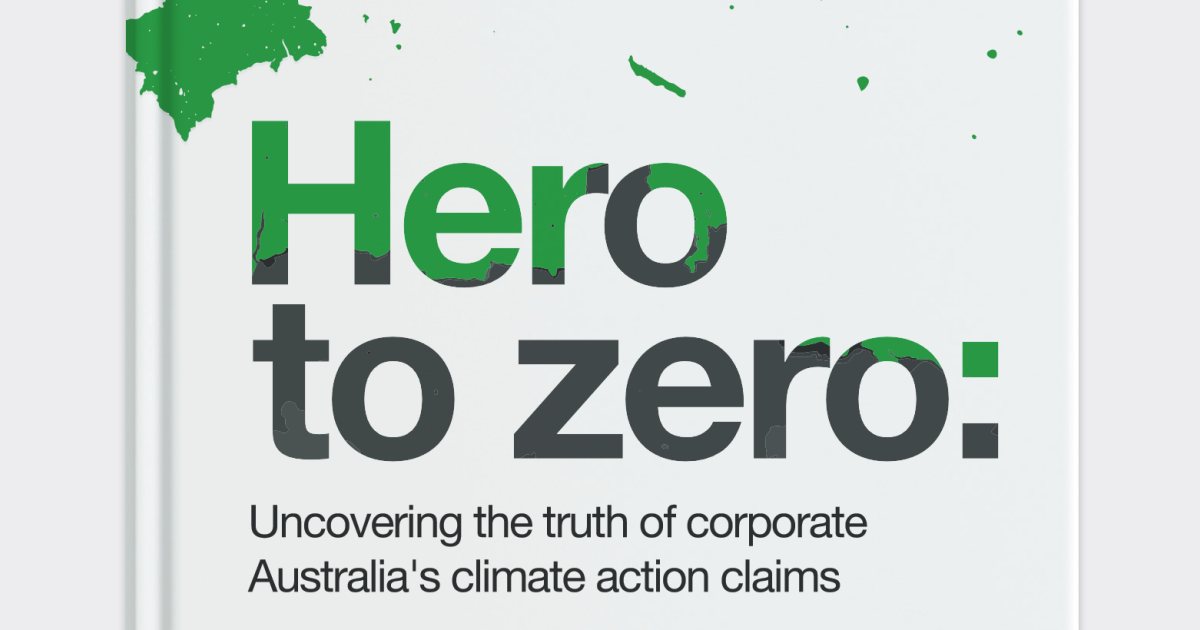
While many of Australia’s top emitting ASX200 companies have set carbon neutral targets, few have committed to switching to 100% renewable electricity says Greenpeace Australia Pacific.
The organisation says its new report reveals some big emitters have also set net zero targets without any commitment to reduce their use and production of fossil fuels.
100% Renewable Electricity Test
“A primary test of whether a business is serious about acting on climate change is whether it has adopted a binding commitment to using 100% renewable electricity by 2025,” states Greenpeace.
41 of the 80 highest emitting ASX200 companies have set net zero targets – but just 14 of those have set 100% renewable electricity goals.
It’s an odd situation – 100% renewable electricity can be achieved by investing in onsite renewable energy production such as commercial solar power, but also by inking power purchase agreements (PPAs) with wind or solar farms. A PPA can be attractive as there’s no up-front cost and these deals can provide equivalent or better bang for buck than conventional electricity supply.
It seems like a no-brainer.
Carbon Offsets And “Greenwashing”
So, what are the others doing? Carbon offsets are pretty popular. This is doing the damage by using fossil fuel based electricity and then making up for it by taking action elsewhere – for example, by planting trees – with the idea of evening things out. Some would consider this approach a bit of an indulgence.
A solar PPA isn’t in the same league. While electricity generated by a solar farm may not be routed directly to a factory, the amount of mains electricity the factory consumes is covered by the agreement. It’s like for like.
Greenpeace is all for ecological restoration, but some carbon offset schemes can be dodgy it says – overseas tree planting projects are identified as particularly problematic.
It notes the following potential issues with such offsets:
- A failure to provide additionality. In other words, if these reductions would not have occurred in the absence of a market for offsets1.
- Unintended negative impacts, such as interfering with livelihoods without suitable substitutions – unjust transitions.
- Enables companies to continue avoid making the shifts necessary for meaningful climate action.
- Tree planting and land restoration alone is not enough to offset climate damage.
- While fossil carbon in the form of coal, oil and gas is locked away permanently unless dug up or extracted, land carbon is active and cycles between the land, ocean and atmosphere.
- More vulnerable to natural disasters (e.g. bushfires) – which are accelerating in frequency and severity with climate change and other human interference (so “natural” may need to be redefined).
While the organisation says high-quality, well-regulated domestic offsets that ensure additionality and the fulfilment of intended emissions reductions should still be available, these should be reserved for industries unable to eliminate emissions in the short term.
“However, this should not be seen as a ‘free pass’ for those companies to not undertake the structural, technical and financial changes required to cut those emissions at source.”
Greenpeace is urging Australian businesses to follow the lead set by companies including Woolworths and Telstra that have committed to switching to 100% renewable electricity by 2025.
More from the report can be viewed here: Hero to zero: uncovering the truth of corporate Australia’s climate action claims.
Footnotes
- The Carbon Offset Research and Education (CORE) initiative of the Stockholm Environment Institute (SEI) and Greenhouse Gas Management Institute (GHGMI) says: “for an activity or project to be additional, the possibility to sell carbon offset credits must play a decisive (“make or break”) role in the decision to implement it.” ↩

 RSS - Posts
RSS - Posts



Speak Your Mind